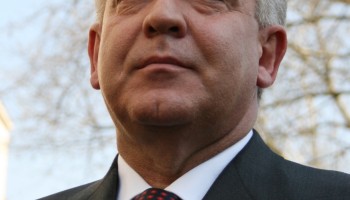According to the indictment issued by the Croatian Office of the State Prosecutor (DORH), Mravak’s approval of the contracts contravenes Croatian trade law and HEP’s regulations. The indictment also accuses Mravak of signing the damaging contracts and breaking the law while acting on the orders of Sanader, then prime minister.
At meetings of HEP’s Supervisory Board and Board of Directors on April 12, 2007, Mravak presented the contracts between HEP and TLM and Aluminij Mostar as beneficial to the company. According to the indictment, he misrepresented the financial benefits in order to get the boards’ approval, and then signed the contracts the same day.
HEP lost around US$100 million in a deal that provided Alumniji Mostar with cheap electricity, and guaranteed a supply of high quality aluminum to TLM from Mostar. The contracts allowed Aluminij Mostar to purchase electricity from HEP at a price well below market value. The cost of the electricity was set to 28 percent of the price of the aluminum produced in Mostar, despite the fact that the market values of aluminum and electricity are not connected. Sanader allegedly decided upon this formula independently.
Further, the contracts provided that in the period between Jan.1, 2008, and Dec. 31, 2011, 100 MWh of electricity would be designated for the exclusive use by Aluminij Mostar. In order to meet the full demand for electricity, HEP was forced to increase the import of electricity at standard market prices, which were significantly higher than the sale prices set by the Aluminij Mostar contract.
As Croatia owns 12 percent of Aluminij Mostar, some defend the HEP-TLM-Aluminij Mostar deal on the basis that it served the interests of the Croatian economy.
“We should distinguish a criminal act from a political decision,”Andrija Hebrang, member of the Croatian Parliament and the Croatian Democratic Union (HDZ) told the newspaper Jutarnji List in May 2010.
“The price of electricity sold to Aluminij Mostar is a typical example of a good [political] decision, because the Aluminij Mostar – TLM – Ploce harbor triangle is of great economic importance for southern Croatia. Croatia is the owner of 12 percent of Aluminij Mostar, and the State was obliged to protect the company’s interests.”
The Prosecutor’s office accuses Sanader of engineering this deal for bribes from Debis, a daughter company of the German company Daimler, which has business ties to Aluminij Mostar. Sanader allegedly received between US$2 million and US$3 million from Debis to facilitate the Aluminij Mostar and TLM contracts with HEP. DORH’s indictment in the HEP case also states that Sanader asked Mravak to send him and his family on vacation at HEP’s expense, which Mravak approved, costing HEP another US$7,000.
USKOK has postponed questioning of Sanader until Jan. 27 when his attorney Cedo Prodanovic can accompany him.
The former PM is already on trial for taking bribes from the Hungarian petrol company MOL and from the Austrian Hypo Alpe Adria Bank. The trials against him are part of the European Union’s accession criteria for Croatia, who is set to become the body’s 28th member in 2013.





